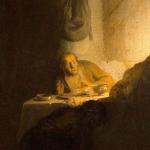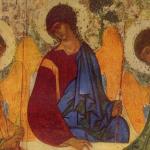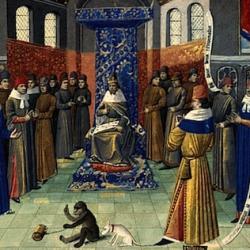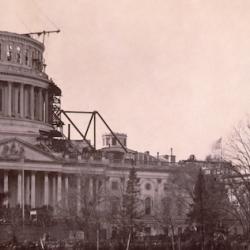Pierre Manent offers a needed corrective to glib modern talk about Machiavelli’s “realism” (An Intellectual History of Liberalism). He acknowledges that “in political ‘reality’ there are murders, conspiracies, coups d’etat.” But that’s not the whole story: “there are also periods and regimes without murders, or conspiracies, or coups d’etat. The absence, so to speak, of these wicked actions is also a ‘reality'” (13).
When we speak of the “realism” of Machiavelli, we have “accepted his point of view: ‘evil’ is politically more significance, more substantial, more ‘real’ than ‘good,'” (13). Which is precisely the opposite of classical politics, which is also about a collective organization around and oriented to the good.
Machiavelli “persuades us to fix our attention exclusively, or almost exclusively, on pathologies.” He is the first “master of suspicion.” Listening to passages like this in Machiavelli, we lose our innocence: “Fidelity in love is a force like religious belief, like the enthusiasm for liberty. Now we have no force left. We no longer know how to love, or to believe or to desire. Everybody doubts the truth of what he says, smiles at the vehemence of what he asserts, and hastens the end of what he is felling” (quoted 14).
Mastery of suspicion is also mastery of irony. As Manent says “One of the most deeply rooted traits of the modern soul is doubt of the good, the smile of superiority and mockery, the passion for losing one’s innocence” (14).
How does Machiavelli himself elude suspicion? Why should we think that he, alone, has the “actual truth” of the situation? How does he manage to place himself outside political interest? What’s the ground of this supposedly “scientific” distance between Machiavelli and the object of study?
Manent thinks Machiavelli’s stance depends on the Christianity he rejects. The church claimed to be “radically exterior and superior to politics.” Machiavelli’s standpoint “was furnished to him by his enemy, the Church.” For Machiavelli, this wasn’t merely an epistemological maneuver; it was a way “to fight the enemy on his own ground” (17). He adopted the church’s position “so as to attack the very foundations of the Church’s autonomy and of its right to intervene in the city-state” (18). He places himself in the position of the “unarmed prophet,” with the mission of disarming Jesus, “the greatest of the unarmed prophets” (18).
Machiavelli’s “realism” is part of a religious reform effort: “Machiavelli is more an antireligious religious reformer than a philosopher” (18).












